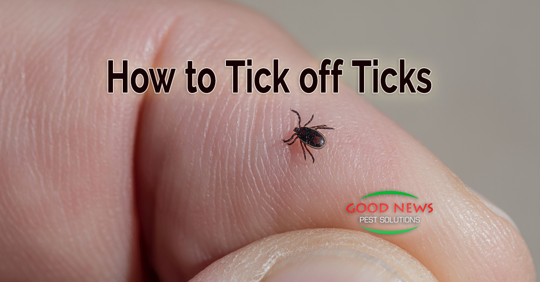While summer doesn’t officially start for another 3 weeks, now that we’ve hit Memorial Day, it’s time to prepare for Ticks – whether you are on vacation or just around the Gulf Coast of Florida.
Here in the Sunshine State we face a few tick threats – American Dog Ticks, Lone Star Ticks, Blacklegged or Deer Ticks, and our very own Gulf Coast Tick. Despite the names, they do not restrict themselves only to animal flesh but will bite and burrow down into any source of mammalian blood – including ours.
Additionally, the entomologists at the University of Florida tell us we should be on the lookout for the Bont Tick – a much more colorful African-originating tick that spread to the Caribbean and may soon infiltrate our area.
Disease Vector Tango
As annoying as being bitten or burrowed by a tick is, their biggest threat is not what they take, but what they leave behind.
Because ticks feed on various animals and birds as well as humans, there are about a dozen diseases that we know for sure that they can transmit to us. The most common of these we see in Florida are Lyme disease, ehrlichiosis, Rocky Mountain spotted fever, and other spotted fever illnesses.
Often it is the nymphs that are biting, not adults, and since they are so small, you may not even be aware of the bite or that the nymph is still there.
The most common symptoms of Lyme disease and spotted fever are fever, headache, and muscle pain. As these are not unusual symptoms, you should always mention to your doctors if you’re suffering and have recently been in a potential tick habitat – woods, tall grass, etc.
Bucking the Bite
The best way to avoid tick bites is to wear long sleeves and pants instead of shorts. You can also tuck your pants into socks to create a tougher barrier. Insecticides are some help, but as more and more bugs build up a resistance, chemicals like DEET become more harmful for us than they are for the pests.
If your summer plans involve hiking or trekking through the wilderness – or even Myakka River State Park – stick to the center of the trails, perform periodic tick checks, and shower as soon as possible after leaving a tick habitat. And, of course, if you have taken your dog with you, check it thoroughly (including inside the ears and mouth) to be sure it isn’t bringing any unwanted passengers into your house.
You should also properly maintain your lawn and surrounding areas. Keeping the grass and shrubbery cut back helps eliminate ticks because they don't do well in dry conditions and short vegetation.
Taking Charge
If you discover a tick in the process of nibbling on you, be very careful. Tugging or squeezing it can cause its blood to end up in your system. The best approach is to use fine-tipped tweezers to grab the head of the tick, and in a straight motion, pull the tick’s head from your skin. After properly disposing of the tick, wash your hands and the bite area with soap and water.
For home infestations, Good News Pest Solutions uses a proprietary strategy to eliminate all adults and apply a residual to known harborage areas within the infested zones. We try to minimize the pesticides we use in your home. We also recommend that you see your vet for proper care for your dog or cat since they are likely the source of the infestation.
For more information on our Tick control program or any of our other low impact, green pest solutions, please give us a call!

